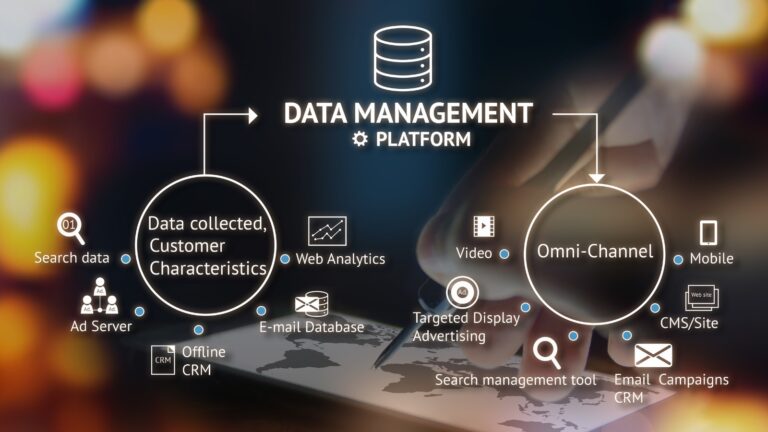Data Analytics is one of the main technologies that has been revolutionising the business world with its useful and straightforward functionalities. Gone are the days when industries relied on traditional and manual methods to make predictions, which drove unsuccessful decision-making in the end. Now, with the employment of data analytics, more industries are able to gain success. In this article, we will talk about the top 10 industries and their implementation of ‘Data Analytics’.
What is Data Analytics?

This is defined as a collection of tools and technology that assist in managing qualitative as well as quantitative information, allowing exploration, streamlining organisation, assisting governance, and producing insights for a business.
If simplified, In this field, data sets are analysed to obtain knowledge that could be applied to address issues across numerous industries. It collaborates with a variety of technologies, including predictive analytics, machine learning, business intelligence, advanced analytics, etc., to provide precise data analysis.
Top 10 Industries Employing Data Analytics

Financial Industry
When it comes to the financial industry, banking is the number one sector that requires the helping hand of advanced technology such as data analytics. That is because banking is a field that is often highly prone to fraudulent financial situations. Data analytics enables banking authorities to monitor their own computer systems to ensure that no one breaches and steals information.
When they need to determine whether odd activity is occurring in clients’ accounts or whether their security is vulnerable, banks employ these sophisticated computer techniques. These advancements in technology allow banks and online financial institutions to provide their clientele with improved services in addition to protecting customers’ money.
Education
There is an immense amount of information generated by the education sector. Training material and learning methodologies have made use of cutting-edge technologies and solutions, whether they are used in schools, universities, or corporate coaching. The administrators can graph and track data to gain insights into learning and teaching patterns and to identify any gaps.
Data analytics enters this scenario as an excellent tool to enhance teaching methods and identify content that students find difficult. That is why this technology has gained popularity in the education sector to make improvements to educational and learning systems outside of the educational setting.
Energy & Utilities
Organisations that belong to this sector are always in need of sophisticated technologies to streamline their business operations without obstacles. Data analytics is the best way for them to engage in management as it provides useful insights into various aspects. For example, we see many energy companies employing this solution to be precise on their energy consumption and on the other hand, energy wastage and saving.
The knowledge assists businesses in managing power outages by detecting peak periods and expertly drafting energy prices. When integrated with machine learning algorithms, this technology provides weather predictions while enhancing renewable energy sources’ efficiency.
Manufacturing
The manufacturing industry implements this robust technology to improve their business operations. Manufacturers obtain important insights by gathering and evaluating data from many sources, including machinery, sensors, and manufacturing lines. Predictive analytics minimises downtime and costs by predicting the need for equipment repair. Real-time monitoring helps quality control by guaranteeing product consistency, while demand forecasting helps supply chain optimization
Also, data analytics helps with resource allocation by reducing waste and energy use. The ultimate data-driven decisions increase productivity, lower production costs, and improve product quality, eventually boosting competitiveness in the global market.
Marketing Industry
Data analytics is a revolutionary innovation for the marketing industry. It helps marketers better understand customer behaviour so that they can design campaigns with the greatest possible impact. Marketers can create tailored advertising that reaches the appropriate audience at the right time by looking at consumer demographics, preferences, and online behaviour.
Social media analytics helps measure engagement, and A/B testing aids in strategy refinement in this field. Further, this technology makes it possible for marketers to precisely calculate the return on investment (ROI).
Media & Entertainment
This industry sector utilises the latter to transform audience interaction, content delivery, and progress. Content producers could benefit their audiences and increase user engagement by studying viewership data and customising programs to their interests. The individualised content recommendations made by recommendation engines keep the audience engaged with the content.
In order to safeguard intellectual property rights, piracy and material leaks are also closely monitored. Also, this helps companies and networks evaluate the effectiveness of their projects and informs choices about content licensing.
Healthcare
This sector employs data analytics to improve operational effectiveness, patient care, medical research, etc. Analysis of medical records and treatment histories improves diagnosis and treatment strategies. The implementation of predictive analytics helps to better understand potential health risks and enhance preventative care.
The identification of trends and probable medication interactions using data-driven insights is also helpful in pharmaceutical research. In addition, healthcare companies employ analytics to find fraud and maintain the accuracy of the billing process. In the long run, data analytics enables the healthcare industry to enhance patient outcomes, cut costs, and drive advances in medical research, resulting in improved healthcare delivery.
Real Estate Industry
The real estate industry leverages data analytics to determine pricing, market trends, and investments in properties more accurately. Property owners and investors can employ analytics tools to find high-potential areas by analysing data on property valuations, rental rates, and demographics. The technique of predictive modelling aids in forecasting changes in demand and pricing for real estate.
The latter is employed by real estate agents to provide customers with location- and preference-based personalised property suggestions. Property management companies also improve the upkeep and retention of tenants using these data-driven insights.
Retail & Wholesale
Retailers utilise analytics to figure out consumer preferences and purchasing patterns and then adjust their marketing and inventory management strategies appropriately. In order to optimise stock levels and decrease waste, predictive analytics helps estimate demand. Based on competitive analysis and current market trends, we can see pricing tactics can be heavily improved.
Those personalised recommendations and targeted promotions aid in customer experience, which ultimately increases sales. Monitoring logistics data increases supply chain efficiency. Retailers gain from this technology in loss prevention and fraud detection. In this sector, the latter is a pillar of contemporary retail, ensuring that companies stay adaptable, customer-focused, and successful.
Transportation
The transportation sector is seen relying on this technology to transform operations and boost productivity. They use real-time data for fleet management to monitor vehicle health, optimise routes, and minimise fuel expenditures. Predictive maintenance ensures prompt fixes, minimising downtime and raising safety as a result.
The passenger transportation services apply this to improve client experiences through prediction of demand, price optimisation, and route planning. Authorities can examine traffic and congestion patterns to reduce congestion and enhance urban planning. With lowering emissions and enhancing fuel economy strategies, arthritis can boost environmental initiatives.
Road to Faster Decision-Making with Cerexio Data Analytics

Data Analytics technology strengthened by Cerexio is entering as the best weapon in your quest for business operational success. It is highlighted with the key advancements such as automated data management, machine learning tools, and self-service analytics, which make it convenient for you to employ in your missions. The utilisation of smart data science to plan cloud platforms, ensuring uninterrupted communication to avoid operational failures in a business context, is what makes Cerexio stand out.
Gaining Strategic Business Accomplishments with Modern Technology

Since you have read this full article, you understand the importance of implementing modern technology into various industries. If you are dreaming of immense growth, you need to make technology your bridge to that success. However, our friendly reminder for you is to research before making any software purchase for your company.
